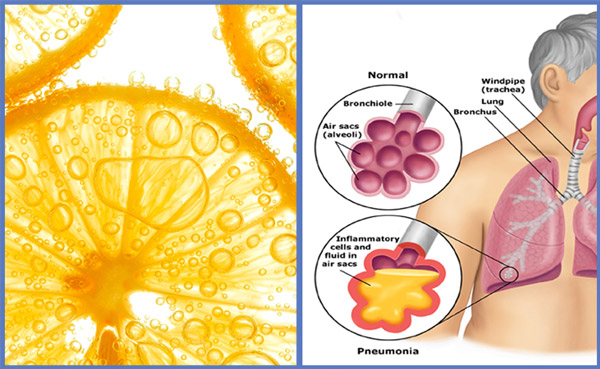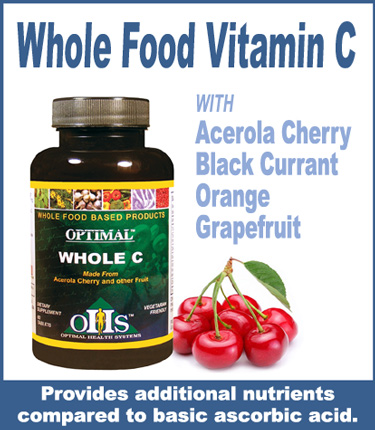In a review published in Nutrients, Dr. Harri Hemila of the University of Helsinki reported that three different controlled trials had found that vitamin C significantly protected against pneumonia.
The review, published in March 2017, asserted that vitamin C supplementation reduced the risk by up to 80 percent.
And the good news didn’t stop there:
Dr. Hemila also reported that two separate studies had found that vitamin C is also an effective treatment in the event pneumonia is diagnosed.
In one study involving pneumonia patients, researchers found that a high-dose treatment with vitamin C—ranging from 500 to 1600 milligrams a day—cut hospital duration by a third. Furthermore, the patients also experienced benefits that included normalization of chest X-rays, temperature, and ESR, or erythrocyte sedimentation rate.
In further presentation of evidence, Dr. Hemila highlighted 148 animal studies which show vitamin C may alleviate or prevent infections caused by bacteria, viruses and fungi. This included tuberculosis, strep infections, diphtheria and Candida albicans.
In addition, the regular administration of this essential nutrient can shortens the duration of colds.
Researchers have found that white blood cells have vitamin C levels up to ten times higher than those of blood plasma, indicating a functional role in the immune system. In fact, they have discovered that cells have active vitamin C transporter molecules in their membranes to help the vitamin gain access.
This explains why vitamin C has been the top-selling vitamin for decades. Even if the specifics were not completely understood, natural health practitioners and laymen alike knew that vitamin C simply works.
Scientists now believe that vitamin C stimulates the immune system and promotes the functions of disease-fighting phagocytes. This is why there is an increased need for vitamin C in times of illness: shortages in the body urgently need to be corrected.
In fact, if you are under the care of an integrative healthcare provider, it is likely he/she will insist that your intake of vitamin C be drastically raised when illness is present.
Furthermore, the nutrient’s antioxidant properties can help curtail the oxidative stress that is created by the immune system in response to pathogens.
When choosing a vitamin C supplement, avoid “ascorbic acid” only supplements and choose a whole food supplement such as Optimal Whole C from Optimal Health Systems.
Vitamin C made from whole foods includes constituents and nutrients not found in basic ascorbic acid.
– – –
Sources: Nutrients, NaturalHealth365.com.


